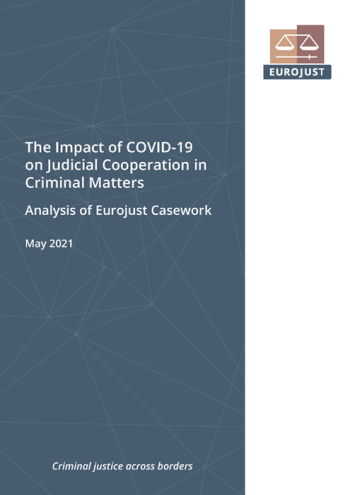
From the early stages of the coronavirus disease (COVID-19) pandemic, Eurojust’s casework showed that practitioners in the Member States were facing various difficulties in dealing with cases involving judicial cooperation in criminal matters. These issues were repercussions of the measures implemented by the Member States to combat the spread of COVID-19 and affected all instruments commonly applied in the field of judicial cooperation. Furthermore, the unprecedented social changes triggered by the pandemic created new opportunities for organised crime groups to gain illicit profit.
The aim of this report is to identify the specific difficulties in application of the most commonly used instruments of judicial cooperation that resulted from the pandemic. Moreover, it identifies the most frequently committed crimes that were directly linked to the pandemic. The report also describes the role of Eurojust in relation to these issues and provides summaries of best practices. This knowledge will benefit practitioners and policymakers should extraordinary measures be applied again.
This report complements the Joint Eurojust-EJN Compilation on the impact of COVID-19 on judicial cooperation in criminal matters. While this compilation focuses on the measures taken by the Member States to combat the spread of the virus and their impact on judicial cooperation in general terms, the report is based on the analysis of specific cases registered at Eurojust during the period from April 2020 to 30 June 2020.
